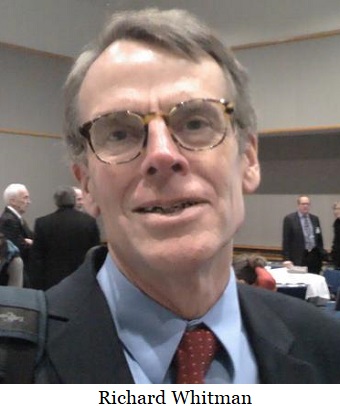The DEQ is celebrating a bloated budget and “environmental justiceâ€
The Environmental Quality Commission -- the board that oversees the Oregon Department of Environmental Quality, directed by Richard Whitman, met for the first time since the close of the 2021 Legislative session and at times, their meeting seemed to be a celebration of their "gains" during the session.
For starters, their over-half-billion
budget increased by 26.2% over the previous biennium -- certainly enough to keep pace with inflation and population growth. They will be adding over 39 new positions, a significant increase.
They noted the passage of
SCR 17 which makes the claim that "environmental and climate solutions must address structural socioeconomic inequalities built by a history of economic and social inequality" and that "frontline communities are Black, Native American, Indigenous and People of Color communities and immigrant and low-income communities that historically and presently experience the brunt of health, economic and ecological impacts and have been made more vulnerable to the consequences of climate change because of these factors."
During the meeting the Commission looked forward to the next legislative session in which they could further increase staff to address issues of environmental justice, as well as the creation of a mapping tool -- presumably to identify areas in which people of color are being impacted by environmental issues.
In other items, the Commission heard a presentation on the implementation of
diesel emissions standards enacted by
HB 2007, which passed in 2019. This bill is focused on the tri-county area and will certainly have an impact on business and prices as it goes into effect.

Interestingly, the Commission was presented with the concept of "exporting" emissions -- the idea is that even when we don't produce the emissions through our industry, we are responsible for emissions created in other states or nations that produce them to meet our demand. It doesn't seem to include the offset that our large forests produce by consuming and sequestering the carbon produced by other states and nations.
The commission also heard a
presentation on the State of the Environment which emphasized the progress being made on brownfields cleanups, diesel emissions, and greenhouse gasses.
 --Staff Reports
--Staff Reports| Post Date: 2021-07-25 14:09:39 | Last Update: 2021-07-25 14:44:28 |








